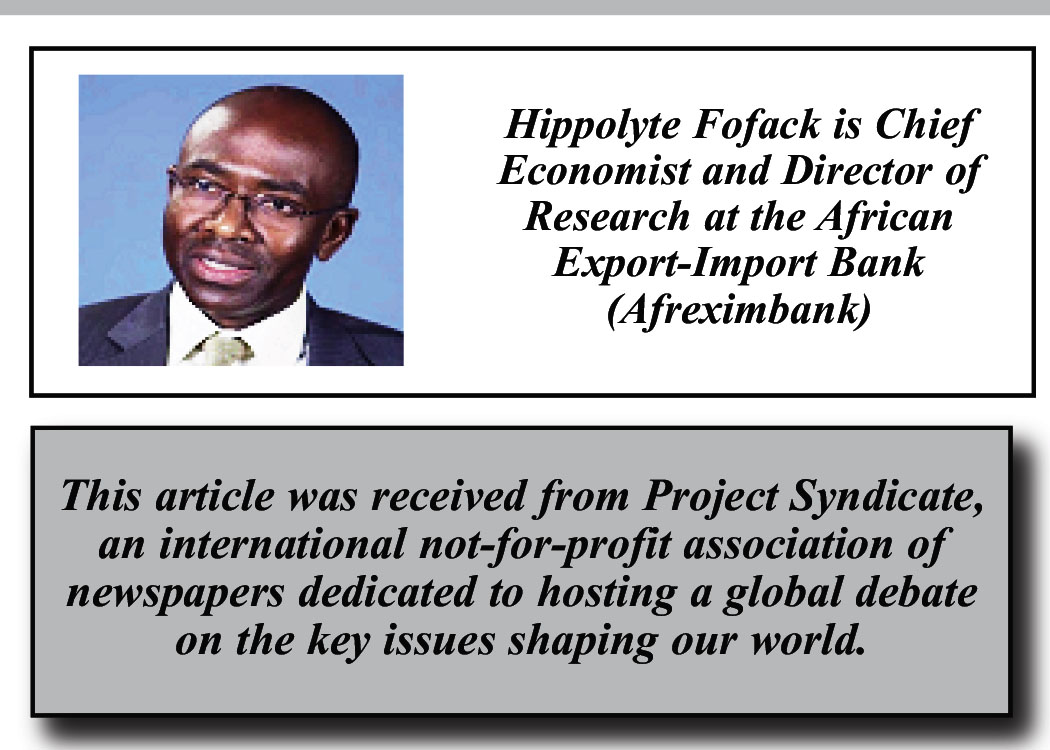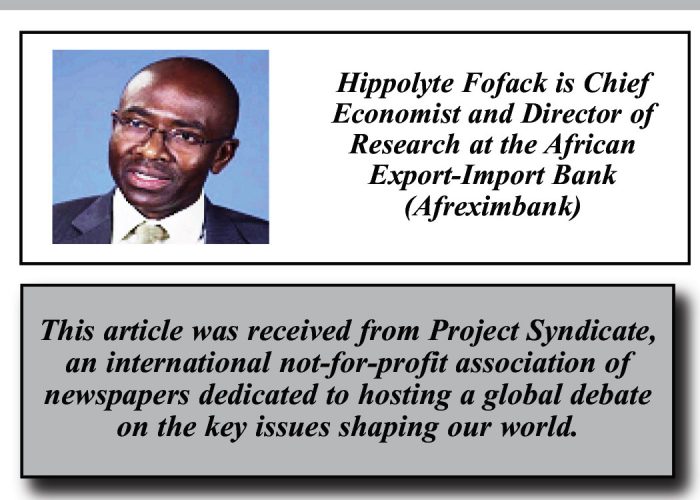CAIRO – Since the ouster of President Mohamed Bazoum in July, Niger, a landlocked West African state, has fallen into dire straits. Perhaps the only good thing to come out of the coup –the latest in a string of military takeovers in the Sahel – is that it has focused international attention on the country, which had previously been relatively stable and democratic.
Renewed interest in Niger’s plight offers an opportunity to reflect on the key development challenges confronting a vast and troubled region. Chief among them is the stickiness of the colonial development model of resource extraction, which has led to intergenerational poverty and environmental degradation – both of which fuel insecurity and migration – in other African countries as well.
Niger embodies Africa’s development paradox. Despite its immense natural-resource wealth, including plentiful renewable and non-renewable energy sources and significant deposits of uranium and gold, it is one of the world’s poorest countries, with more than ten million people (around 42% of the population) living in extreme poverty. Almost half of Niger’s children are not in school, owing largely to mass displacement and school closures caused by an increase in violence. Unsurprisingly, the country is ranked at the very bottom of the United Nations Development Program’s Human Development Index, ahead of only Chad and South Sudan.
The growing Islamist insurgency in the Sahel region has only made the situation worse. From June 2022 until June 2023, more than 22,000 Africans were killed in jihadist-related violence, a 50% increase from the preceding year. In recent years, terrorists have destroyed villages and massacred civilians in Niger. And these groups have continued to grow more powerful, despite the proliferation of foreign military bases and drone stations in the country. This rampant insecurity, coupled with stagnant economic growth, mismanagement of natural resources, intergenerational poverty, and climate disasters, has suffocated Niger’s population.
Only days after the coup, Niger faced rolling blackouts when Nigeria, in breach of its obligations as a member of the nine-country Niger Basin Authority, cut electricity supplies to its neighbor. The power cuts risk exacerbating insecurity and social instability in Niger, which is already confronting draconian economic and financial sanctions imposed by the Economic Community of West African States. These include freezing Nigerien assets held in regional central banks and suspending all commercial transactions between Niger and ECOWAS members.
There is a certain irony that Nigeria, which suffers blackouts so frequently that its power supply is mocked as “epileptic,” has cut Niger’s access to electricity. In fact, despite being the largest oil producer on the African continent, Nigeria is one of the world’s most energy-poor countries in per capita terms: its citizens consume an average of 113 kilowatt hours of electric energy per capita annually, compared to a continental average of 317 kWh. Typically, the country can generate only around four gigawatts per day – far too little to support its population of more than 225 million.
While roughly 60% of Nigerians have access to electricity, less than 20% of Nigeriens do (that share drops to 9.1% in rural areas). Moreover, Niger consumes a paltry 51 kWh of electric energy per capita annually. And yet, the country is one of the world’s biggest producers of uranium, which is essential to the production of nuclear energy in Europe.
Niger’s uranium deposits have served its former colonial ruler, France, especially well, powering one-third of lightbulbs in the country, according to Oxfam. Around 70% of France’s electricity is derived from nuclear energy, which has enabled French citizens to consume more than 6,950 kWh of electric energy per capita annually – one of the highest rates in the world. Roughly 20% of France’s total uranium imports came from Niger between 2012 and 2022, while the country accounts for one-fifth of the European Union’s total uranium imports.
French multinationals have profited massively from Niger’s uranium over the years. According to Oxfam, in 2010 two subsidiaries of state-controlled nuclear group Areva (now part of Orano) extracted 114,346 metric tons of uranium in Niger with an export value of more than €3.5 billion ($3.7 billion), of which only 13% (around €459 million) was paid to Niger.
And while Niger has failed to secure greater financial benefits from multinational companies for the exploitation of its uranium deposits, mounting military expenditures to counter the Islamist threat and constraints on domestic revenue mobilization have left it dependent on foreign aid, which accounts for 40% of its budget.
Moreover, the extraction itself has caused significant harm to the environment and the health of its citizens. In 2010, a Greenpeace investigation revealed dangerous radiation levels among Nigeriens working in the mining sector, some of whom suffered from unexplained skin, liver, kidney, and lung diseases. Earlier this year, the Independent Research and Information Commission on Radioactivity found that 20 million tons of uncovered waste from a recently depleted uranium mine was spreading radon, a radioactive gas, through the air and threatened to contaminate drinking-water supplies.
The natural resources that were supposed to help improve the welfare of the population have failed to meet expectations. Worse still, in the absence of value addition for effective integration into global value chains, the persistence of the colonial development model has meant that Africa’s resource endowment remains a blessing only for the former rulers doing the extracting and a curse for the country from which they are extracted, yielding only enduring poverty and pollution, rather than tangible benefits, for local people.
Army Captain Ibrahim Traoré, the young leader of Burkina Faso who seized power in a military coup last year, lamented Africa’s underdevelopment while speaking at the Russia-Africa Summit in St. Petersburg in July. “The question that my generation poses to itself, if I can summarize it, is how can Africa, with so many resources under our soil, with such a natural abundance of sun and water, still today remain the poorest continent?” Traoré asked.
That sentiment helps to explain why Nigeriens cheered on the troops after the ouster of Bazoum. The first post-coup opinion survey indicated 78% support for the military’s actions, with 73% of respondents saying the coup leaders should stay in power for an extended period or until new elections are held. As these numbers suggest, unless countries broaden the distributional gains from natural-resource exploitation while minimizing negative externalities, democracy on the continent – indeed, basic political stability – will remain fragile.
Copyright: Project Syndicate, 2023.






